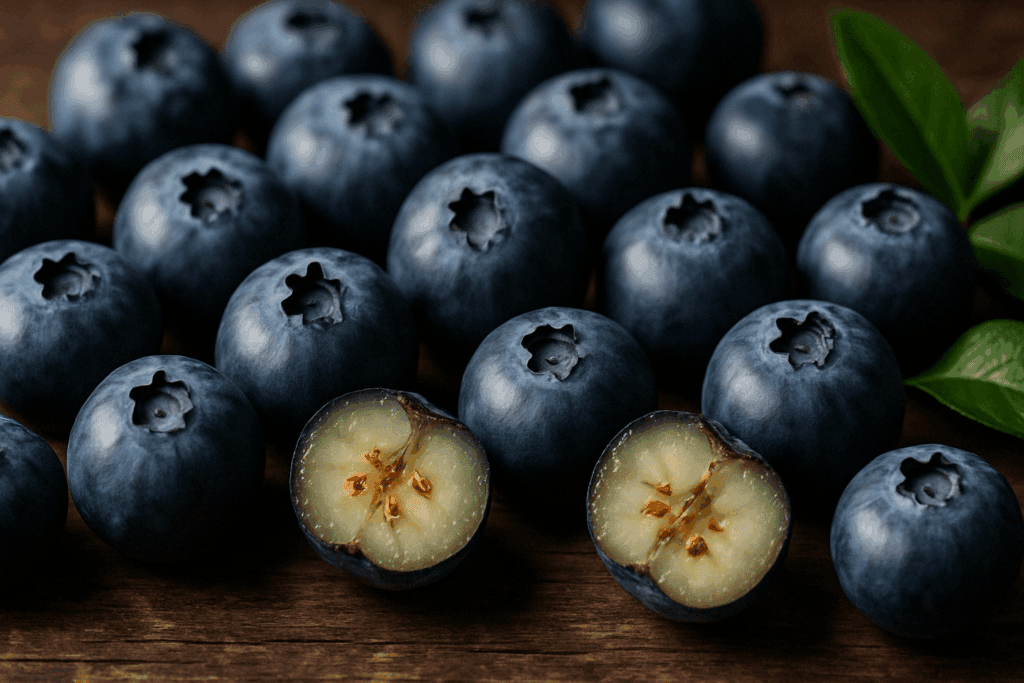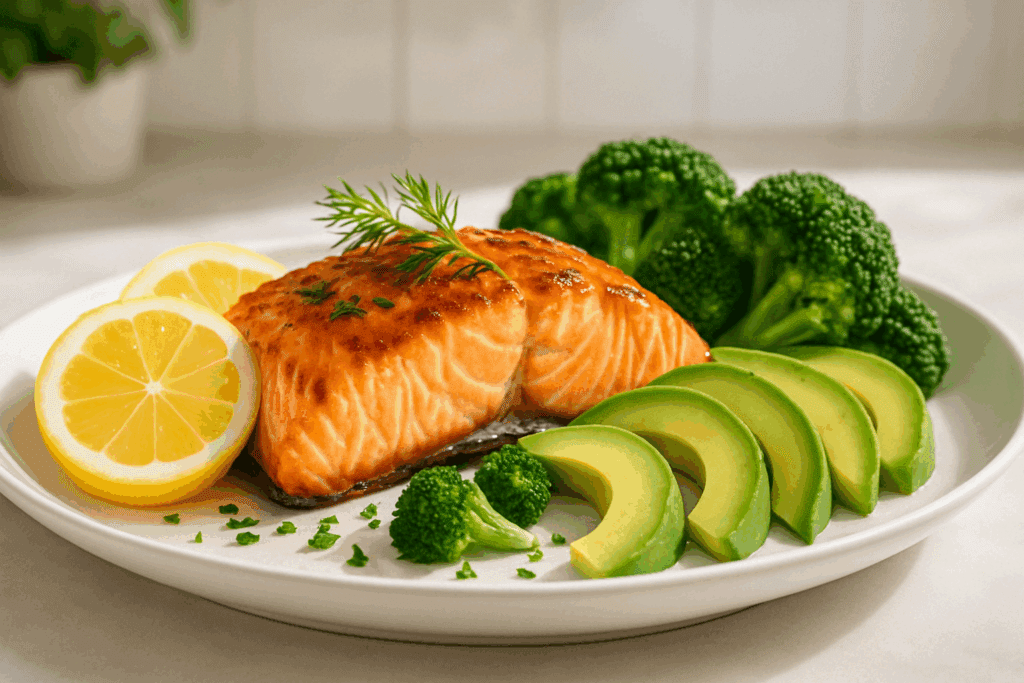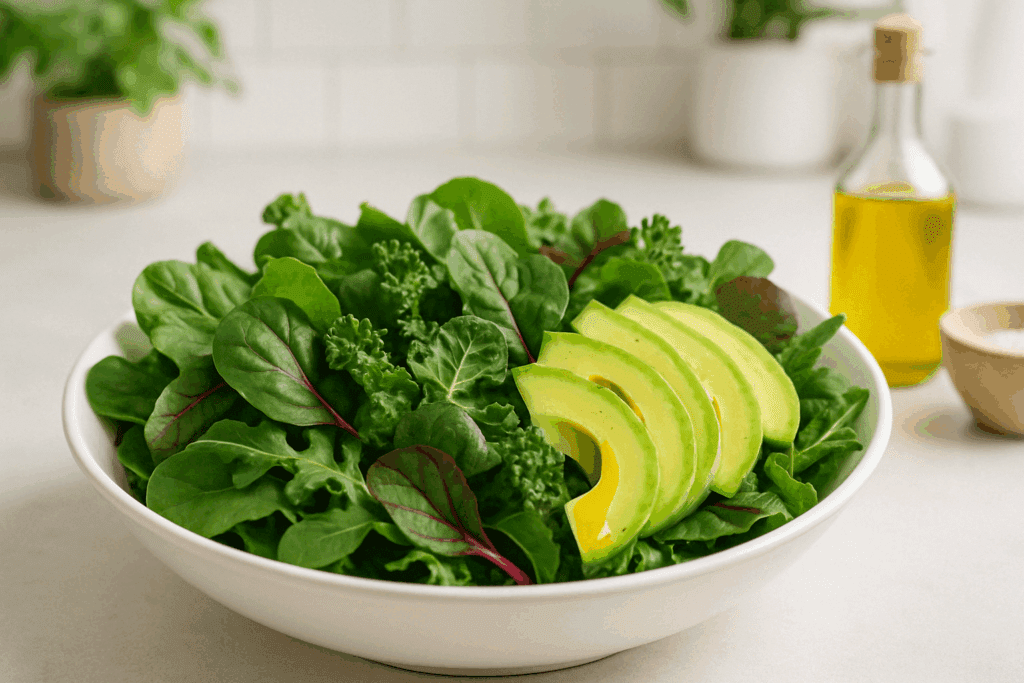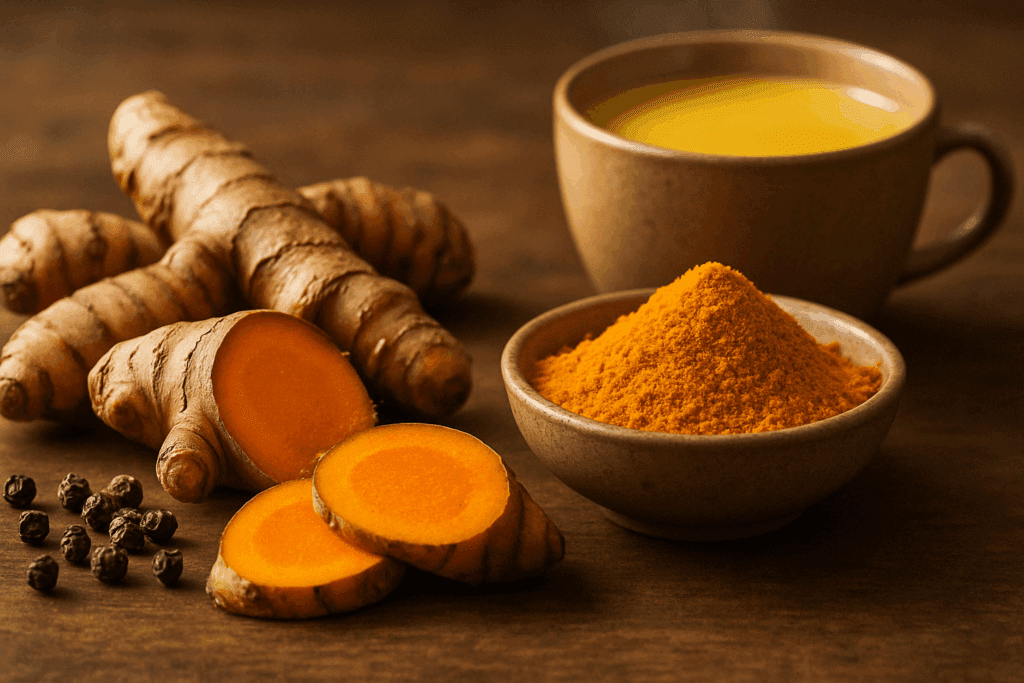Introduction: How Nourishment Shapes Cognitive Vitality
In the quest for sharper focus, sustained memory, and long-term brain health, diet often plays a silent yet profound role. Understanding what foods are good for the nervous system not only elevates mental performance but also fortifies the brain against age-related cognitive decline. As research increasingly validates the intricate relationship between nutrition and neurobiology, it becomes clear that the foods we choose are integral to mental clarity, emotional resilience, and overall cognitive vitality. Foods that help the nervous system are not exotic, unattainable ingredients; many are everyday items that, when consumed intentionally, can have profound effects on the mind. In this exploration, we will dive deep into five natural foods celebrated for their brain-supporting powers, offering detailed insights backed by scientific evidence, practical application tips, and an understanding rooted in both modern medicine and timeless nutritional wisdom.
You may also like: Where to Buy Bacopa Monnieri: How to Find Quality Supplements for Cognitive and Memory Support
Blueberries: The Antioxidant Powerhouse for Brain Longevity
Blueberries have earned their title as “brain berries,” a name popularized after a series of studies highlighted their exceptional neuroprotective effects. Rich in flavonoids—specifically anthocyanins—these small fruits have a unique ability to cross the blood-brain barrier, exerting direct effects on neurons and brain signaling pathways. What makes blueberries particularly potent is their capacity to counteract oxidative stress, a process intimately linked with neurodegeneration and cognitive aging. Chronic oxidative stress damages nerve cells, leading to impaired memory and slower cognitive processing. Foods that help the nervous system, such as blueberries, work by neutralizing free radicals and reducing inflammation within brain tissues.
Clinical studies have shown that regular consumption of blueberries can improve memory in older adults, enhance communication between brain cells, and even promote the growth of new neurons in areas critical for learning and memory, such as the hippocampus. To integrate this food into a daily routine, fresh or frozen blueberries can be added to smoothies, oatmeal, or even savory dishes like salads. It is not merely about eating blueberries occasionally but incorporating them consistently to harness their cumulative benefits for nervous system health.

Fatty Fish: Essential Omega-3s for Neuroprotection
Among the most potent foods that help the nervous system, fatty fish like salmon, mackerel, sardines, and trout stand out for their dense concentration of omega-3 fatty acids, particularly DHA (docosahexaenoic acid) and EPA (eicosapentaenoic acid). These essential fats are critical structural components of brain cell membranes and are fundamental to maintaining the fluidity and integrity of neurons. DHA, in particular, is abundant in the brain and retina, highlighting its evolutionary importance in nervous system function.
Research has consistently linked higher intake of omega-3 fatty acids with slower age-related cognitive decline, reduced risk of neurodegenerative diseases such as Alzheimer’s, and improved emotional regulation. What foods are good for the nervous system often comes down to those that provide the building blocks for brain repair and communication—fatty fish are among the most scientifically validated options.
Including fatty fish in the diet two to three times per week can help maintain optimal brain function and emotional balance. For those unable to consume fish regularly, high-quality fish oil supplements or plant-based sources like algal oil offer alternatives, though the bioavailability of DHA and EPA may vary. Preparation methods matter; baking, steaming, or lightly grilling fish preserves its delicate fats far better than deep-frying, ensuring the brain receives the maximum benefit from each serving.
Leafy Green Vegetables: Nature’s Multivitamin for Cognitive Resilience
Leafy greens such as spinach, kale, arugula, and Swiss chard are veritable nutritional goldmines, particularly for brain health. Rich in folate, vitamin K, lutein, and beta-carotene, these vegetables offer compounds that reduce inflammation, protect neurons, and support synaptic plasticity—the brain’s ability to form new connections. A growing body of research emphasizes that individuals who consume greater quantities of leafy greens exhibit slower rates of cognitive decline, independent of other lifestyle factors.
Folate plays a pivotal role in neurotransmitter synthesis and DNA repair within nerve cells. A deficiency in folate has been associated with depression, cognitive impairment, and even an increased risk of dementia. Foods that help the nervous system, such as leafy greens, address these biological needs directly, replenishing critical micronutrients that the brain requires to operate efficiently.
Incorporating leafy greens can be as simple as adding a handful to a morning smoothie, enjoying a vibrant salad at lunch, or sauteing them with garlic and olive oil for dinner. To maximize nutrient absorption, pairing leafy greens with a healthy fat source, such as avocado or olive oil, enhances the bioavailability of fat-soluble vitamins like vitamin K and beta-carotene, further reinforcing their brain-boosting effects.

Walnuts: Brain-Shaped Powerhouses of Omega-3 and Polyphenols
Interestingly shaped like miniature brains, walnuts are symbolic of the intricate support they offer to the nervous system. As a rich plant-based source of alpha-linolenic acid (ALA), a type of omega-3 fatty acid, walnuts contribute to maintaining neuronal integrity and fluidity. Beyond healthy fats, walnuts are loaded with antioxidants, polyphenols, vitamin E, and melatonin, forming a synergistic blend that fights oxidative stress and supports circadian rhythms crucial for cognitive clarity.
Numerous studies suggest that higher walnut consumption is linked with better cognitive test scores, improved memory, and enhanced processing speed. The mechanisms at play involve reducing inflammatory markers, supporting healthy blood flow to the brain, and promoting neurogenesis—the creation of new neurons. Walnuts truly epitomize what foods are good for the nervous system by offering a comprehensive suite of nutrients specifically tailored to neuronal needs.
A practical approach to integrating walnuts into daily life includes adding a small handful (about one ounce) to morning oatmeal, blending them into smoothies, or using them as a topping for vegetable dishes. Raw, unsalted walnuts preserve their full nutritional profile, whereas heavily roasted or salted varieties may compromise some of their delicate oils and micronutrients.
Turmeric: The Golden Root of Neuroinflammation Defense
Turmeric, revered in traditional medicine for centuries, has become a focal point in contemporary neuroscience research for its profound effects on brain health. The active compound curcumin is credited with potent anti-inflammatory and antioxidant properties that protect the brain against chronic inflammation—a recognized contributor to neurodegenerative diseases like Alzheimer’s and Parkinson’s.
What foods are good for the nervous system often hinges on their ability to modulate the body’s inflammatory response, and turmeric excels in this domain. Curcumin enhances brain-derived neurotrophic factor (BDNF), a protein that supports the survival of existing neurons while encouraging the growth of new ones. Low BDNF levels are associated with depression, cognitive decline, and a host of other neurological conditions.
However, curcumin’s bioavailability—its absorption and utilization by the body—is naturally low. To overcome this, combining turmeric with black pepper (which contains piperine) dramatically enhances curcumin absorption by up to 2,000%. Practical ways to incorporate turmeric include adding it to curries, soups, golden milk lattes, or smoothies. Choosing high-quality, organic turmeric and pairing it with a fat source, like coconut milk or olive oil, further augments its therapeutic potential.

How Foods That Help the Nervous System Support Cognitive Clarity
The nervous system is an intricate web of electrical and chemical signals, a master communicator that governs everything from our thoughts and emotions to our physical actions. For this vast network to function seamlessly, it requires a constant supply of specific nutrients capable of nurturing neurons, facilitating neurotransmitter synthesis, and preventing oxidative and inflammatory damage. Foods that help the nervous system provide these critical building blocks, allowing the body to maintain cognitive clarity, emotional resilience, and optimal physical coordination.
When we understand what foods are good for the nervous system, we empower ourselves to make daily dietary choices that accumulate into lasting benefits. The protective antioxidants in blueberries, the structural fats in salmon, the micronutrients in leafy greens, the neuroprotective compounds in walnuts, and the anti-inflammatory agents in turmeric each address a different aspect of neural health. Together, they create a symphony of support that strengthens our cognitive capacities across every stage of life.
Beyond isolated benefits, these foods influence broader systemic processes—they regulate blood sugar levels, promote healthy circulation, and modulate the gut-brain axis, all of which have profound impacts on mental performance and emotional stability. Incorporating these foods consistently can fortify the brain’s defenses against the wear and tear of daily stressors, environmental toxins, and even genetic predispositions to cognitive disorders.
Frequently Asked Questions (FAQ) on Nervous System Support Through Nutrition
1. How can daily habits enhance the benefits of eating foods that help the nervous system?
Beyond simply eating foods that help the nervous system, daily habits like mindful eating, maintaining a consistent sleep schedule, and minimizing chronic stress can significantly amplify their effects. For example, pairing omega-3-rich foods with consistent hydration practices enhances cellular communication in the brain. Incorporating brief, restorative breaks during work helps your body absorb nutrients more efficiently. When exploring what foods are good for the nervous system, combining them with lifestyle factors like meditation or gentle exercise creates a synergy that promotes overall neurological resilience. Thus, food choices are just one part of a larger ecosystem supporting nerve health.
2. Are there any overlooked nutrients in foods that help the nervous system?
Yes, several critical but often overlooked nutrients include choline, magnesium, and selenium. While many people recognize the role of B vitamins, emerging research suggests that choline (found in eggs and liver) is crucial for acetylcholine production, a key neurotransmitter. Likewise, magnesium-rich foods like spinach or pumpkin seeds quietly bolster nerve transmission efficiency. If you’re exploring what foods are good for the nervous system, seeking out these under-discussed nutrients can offer deeper layers of protection against cognitive decline. Building a diverse nutritional portfolio ensures that even subtle aspects of nerve health are supported.
3. How do social eating habits influence the impact of foods that help the nervous system?
Surprisingly, the emotional context in which you consume foods that help the nervous system can influence nutrient assimilation. Shared meals, especially those rich in omega-3s, antioxidants, and vitamins, stimulate parasympathetic nervous system activation — the “rest and digest” mode — which optimizes digestion and nutrient absorption. Asking yourself what foods are good for the nervous system is important, but so is considering how you eat them. Studies increasingly suggest that eating in a calm, supportive environment may enhance neurological benefits beyond what the food alone could achieve. Thus, cultivating community at the table matters for nervous system vitality.
4. Can foods that help the nervous system aid in faster recovery after nerve injuries?
Absolutely. Emerging rehabilitation science highlights that a diet rich in foods that help the nervous system — such as avocados, salmon, and blueberries — may speed nerve regeneration after injury. These foods deliver anti-inflammatory compounds and essential fatty acids that help rebuild damaged myelin sheaths around nerves. Those researching what foods are good for the nervous system will find that targeted nutrition, when combined with physical therapy, may significantly shorten recovery timelines. It’s a proactive approach that addresses healing from the inside out. Consistency and nutrient diversity are key during this sensitive period.
5. What is the role of gut health in maximizing the benefits of foods that help the nervous system?
An often-missed connection is that gut health dramatically impacts how foods that help the nervous system work within your body. The gut-brain axis — a bidirectional communication pathway — means that a healthy gut microbiome enhances the bioavailability of nerve-supporting nutrients like folate and omega-3s. When identifying what foods are good for the nervous system, it’s wise to also include probiotic and prebiotic-rich choices like yogurt, kefir, or chicory root. These support the gut environment necessary for optimal nutrient absorption and neurotransmitter production. Thus, nurturing your gut flora becomes an indirect but powerful strategy for nerve health.
6. Are there any surprising foods that help the nervous system which most people overlook?
Definitely. While classic choices like leafy greens and salmon are well-known, lesser-discussed foods like seaweed, pumpkin seeds, and fermented foods offer remarkable benefits. Seaweed, for instance, is packed with iodine and tyrosine, both critical for nerve signaling and thyroid health, which indirectly affects the nervous system. Those curious about what foods are good for the nervous system should also consider colorful varieties of beans, which provide a steady source of B vitamins and fiber. Exploring beyond mainstream superfoods opens doors to even more powerful nerve-nourishing options.
7. How do cooking methods impact the benefits of foods that help the nervous system?
Cooking techniques can either enhance or diminish the potency of foods that help the nervous system. Light steaming, for example, preserves water-soluble vitamins like B-complex, which are critical for nerve function. In contrast, prolonged boiling may strip vegetables of these essential compounds. If you’re wondering what foods are good for the nervous system, it’s just as vital to understand how preparation affects them. Grilling, steaming, or lightly sautéing foods often preserves more bioactive compounds compared to deep frying or overcooking. Careful preparation ensures the nervous system receives maximum nourishment.
8. How can intermittent fasting interact with foods that help the nervous system?
Intermittent fasting, when done carefully, may enhance the body’s sensitivity to foods that help the nervous system. Fasting periods promote autophagy — a cellular clean-up process — making neurons more responsive to nutrients like DHA from fish oil or polyphenols from berries. As you reintroduce foods after fasting, focusing on what foods are good for the nervous system can optimize neural rejuvenation. However, balance is crucial: overly aggressive fasting without nutrient-dense refeeding could deplete the nervous system over time. Thoughtful implementation amplifies long-term cognitive and neurological resilience.
9. Can psychological states affect how well foods that help the nervous system work?
Yes, psychological factors like chronic stress or persistent anxiety can blunt the effectiveness of foods that help the nervous system. Cortisol, the stress hormone, can interfere with the body’s ability to utilize key nutrients, including magnesium and omega-3 fatty acids. Even if someone knows what foods are good for the nervous system and eats them consistently, unresolved psychological stress may undermine their efforts. Therefore, pairing nutritional strategies with emotional regulation techniques like mindfulness or cognitive-behavioral therapy can optimize results. A holistic view ensures both mind and body are aligned in supporting nerve health.
10. What future innovations are emerging around foods that help the nervous system?
The future looks promising for personalized nutrition tailored specifically to neurological health. Researchers are developing functional foods — fortified with targeted neuroprotective compounds — designed to complement traditional diets. Genomic testing may soon reveal personalized profiles that answer not just what foods are good for the nervous system generally, but which specific foods best suit your unique neural biochemistry. Additionally, innovations in food science are enhancing the bioavailability of nerve-supporting nutrients like curcumin and resveratrol through advanced delivery systems. These developments point toward a future where nerve health is actively engineered through precision nutrition.

Conclusion: Embracing a Brain-Healthy Lifestyle Through Nourishment
In an era where cognitive demands are ever-increasing, prioritizing foods that help the nervous system is an act of self-preservation and optimization. Through mindful, informed dietary choices, we tap into nature’s pharmacy, accessing powerful nutrients that preserve and enhance brain function naturally. Knowing what foods are good for the nervous system is more than an academic exercise—it is a practical, empowering tool that offers tangible results in memory, focus, emotional stability, and overall well-being.
Blueberries, fatty fish, leafy greens, walnuts, and turmeric each bring unique, evidence-backed benefits to the table, supporting the brain through multiple complementary mechanisms. Their consistent inclusion in the diet can slow cognitive aging, bolster mental performance, and build resilience against neurodegenerative challenges. As science continues to uncover the intricate relationships between diet and brain health, one truth remains clear: the path to cognitive clarity is paved with what we choose to put on our plates.
Ultimately, embracing foods that help the nervous system is an investment not only in long-term brain health but also in a richer, more vibrant quality of life. By making nutrition a central pillar of cognitive care, we honor the incredible potential of the human mind and set ourselves on a course toward lifelong mental vitality.
Was this article helpful? Don’t let it stop with you. Share it right now with someone who needs to see it—whether it’s a friend, a colleague, or your whole network. And if staying ahead on this topic matters to you, subscribe to this publication for the most up-to-date information. You’ll get the latest insights delivered straight to you—no searching, no missing out.
Further Reading:
12 foods to boost brain function
Best Foods for A Healthy Brain and Improved Memory
10 foods to boost your brainpower
Important Note: The information contained in this article is for general informational purposes only, and should not be construed as health or medical advice, nor is it intended to diagnose, prevent, treat, or cure any disease or health condition. Before embarking on any diet, fitness regimen, or program of nutritional supplementation, it is advisable to consult your healthcare professional in order to determine its safety and probable efficacy in terms of your individual state of health.
Regarding Nutritional Supplements Or Other Non-Prescription Health Products: If any nutritional supplements or other non-prescription health products are mentioned in the foregoing article, any claims or statements made about them have not been evaluated by the U.S. Food and Drug Administration, and such nutritional supplements or other health products are not intended to diagnose, treat, cure, or prevent any disease.


